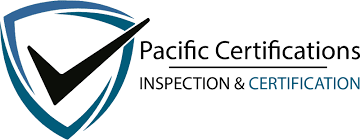How ISO Certifications Support Sustainable Business Practices in the U.S.
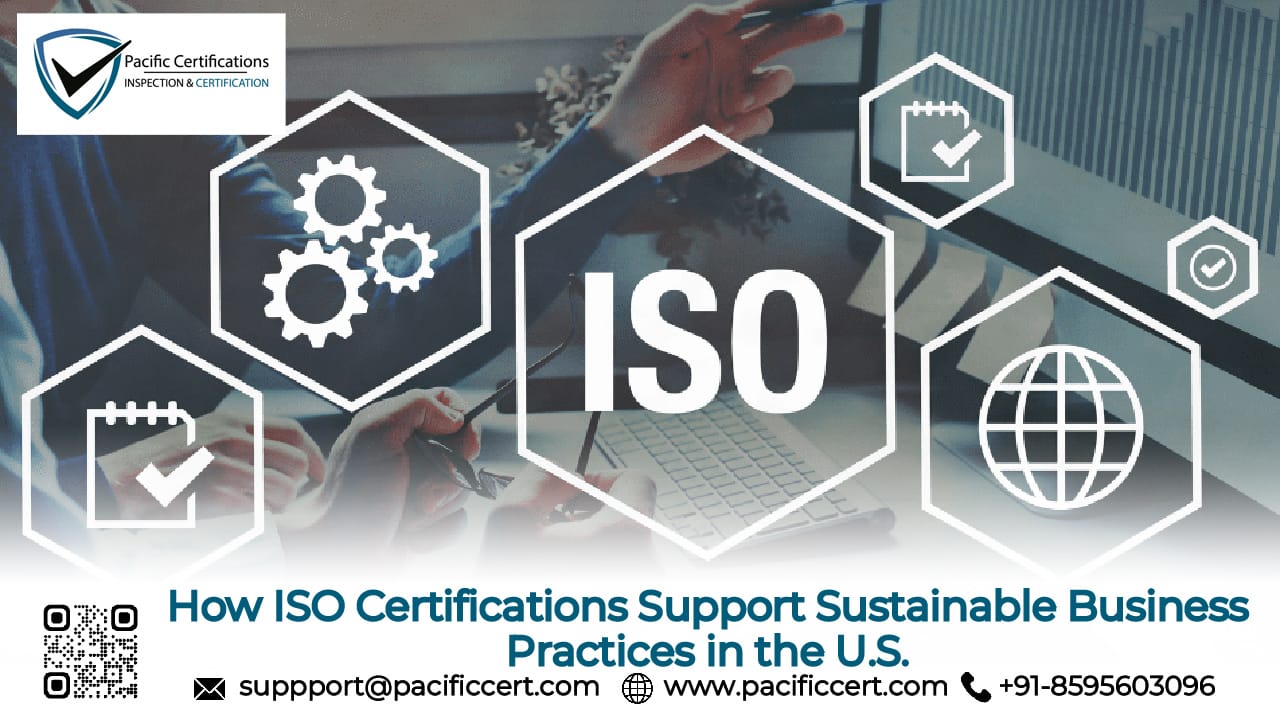
Sustainability has become a core pillar of long-term business strategy in the United States. As regulatory requirements increase and stakeholder expectations evolve, companies across industries are under mounting pressure to reduce environmental impact and to increase transparency. One of the most effective ways U.S. organizations are addressing these challenges is by adopting ISO certification frameworks.
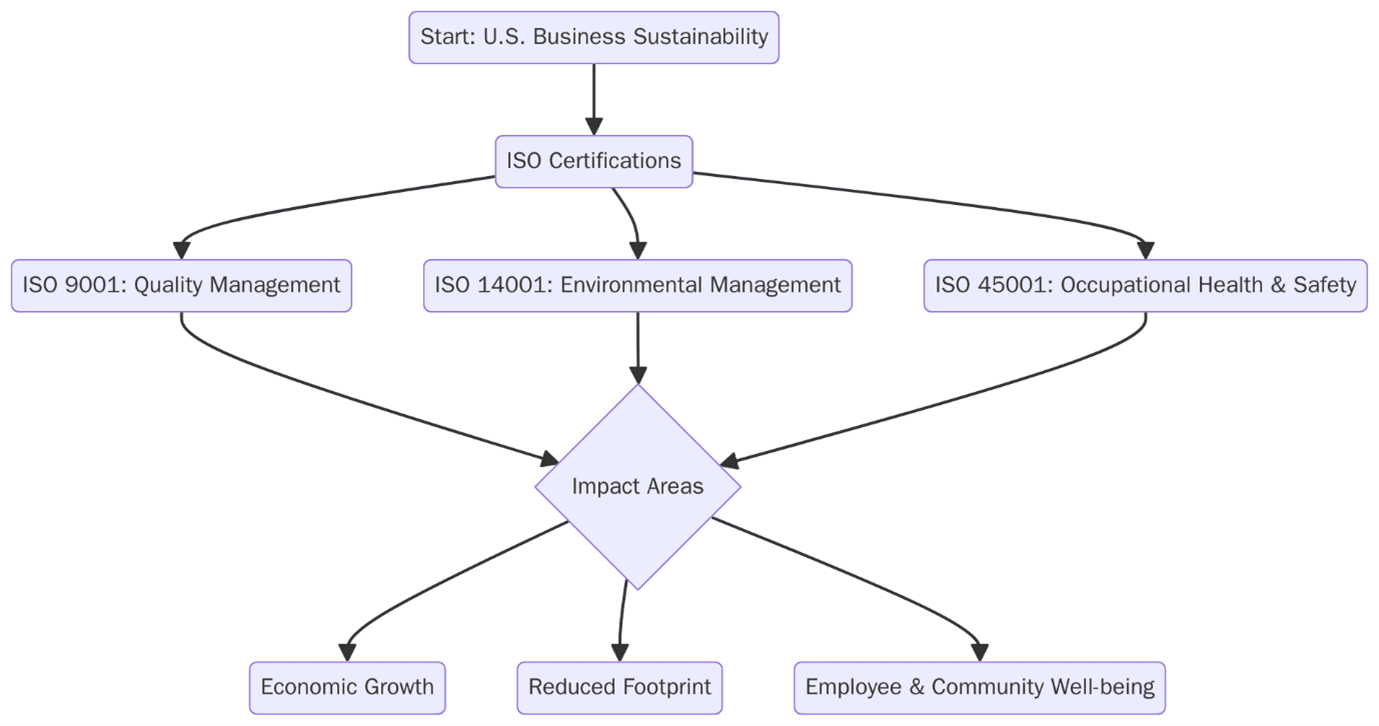
International Organization for Standardization (ISO) standards provide globally recognized guidelines that help businesses to develop structured, measurable, and certifiable systems aligned with environmental and economic sustainability goals. From managing environmental responsibilities to promoting energy efficiency and ethical practices, ISO certifications empower American businesses to align with the principles of sustainability in a credible and systematic way.
The Role of ISO Certifications in Corporate Sustainability
ISO certifications go beyond compliance. They provide a blueprint for businesses to embed sustainability into every layer of their operations, from procurement and supply chain to production, HR, and strategic decision-making. By applying ISO standards, organizations in the U.S. are improving their environmental performance and reducing waste and conserving resources.
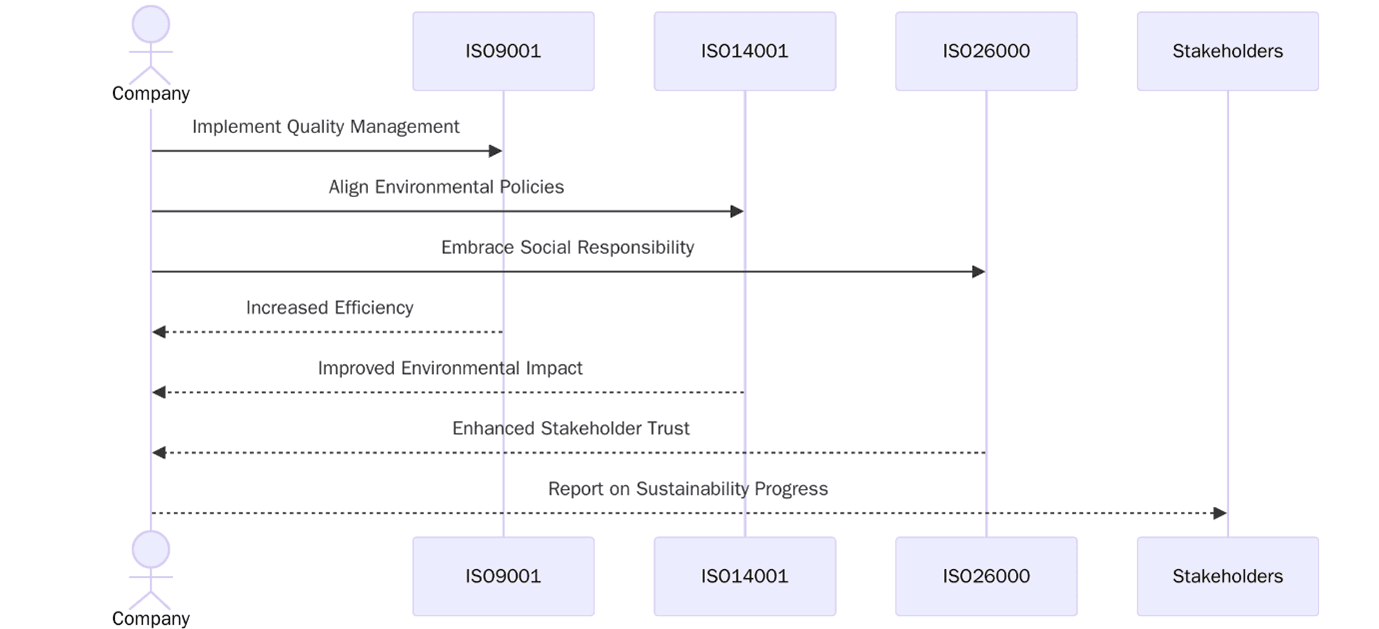
For example, ISO 14001:2015, the standard for Environmental Management Systems (EMS), helps businesses to identify and manage environmental risks and opportunities, ensuring that their practices align with ecological preservation goals. Similarly, ISO 50001 supports energy efficiency, while ISO 26000 provides guidance on social responsibility and ethical conduct.
When implemented effectively, these standards enable organizations to reduce operational costs and achieve long-term economic viability, cornerstones of any sustainable business.
We at Pacific Certifications can help you certify to ISO standards that support your environmental and social governance goals. Contact us at [email protected].
ISO 14001 and Environmental Responsibility
ISO 14001 is the most widely recognized environmental management system standard in the world. In the United States, it plays an important role in helping organizations manage their environmental responsibilities in a systematic manner that contributes to environmental sustainability.
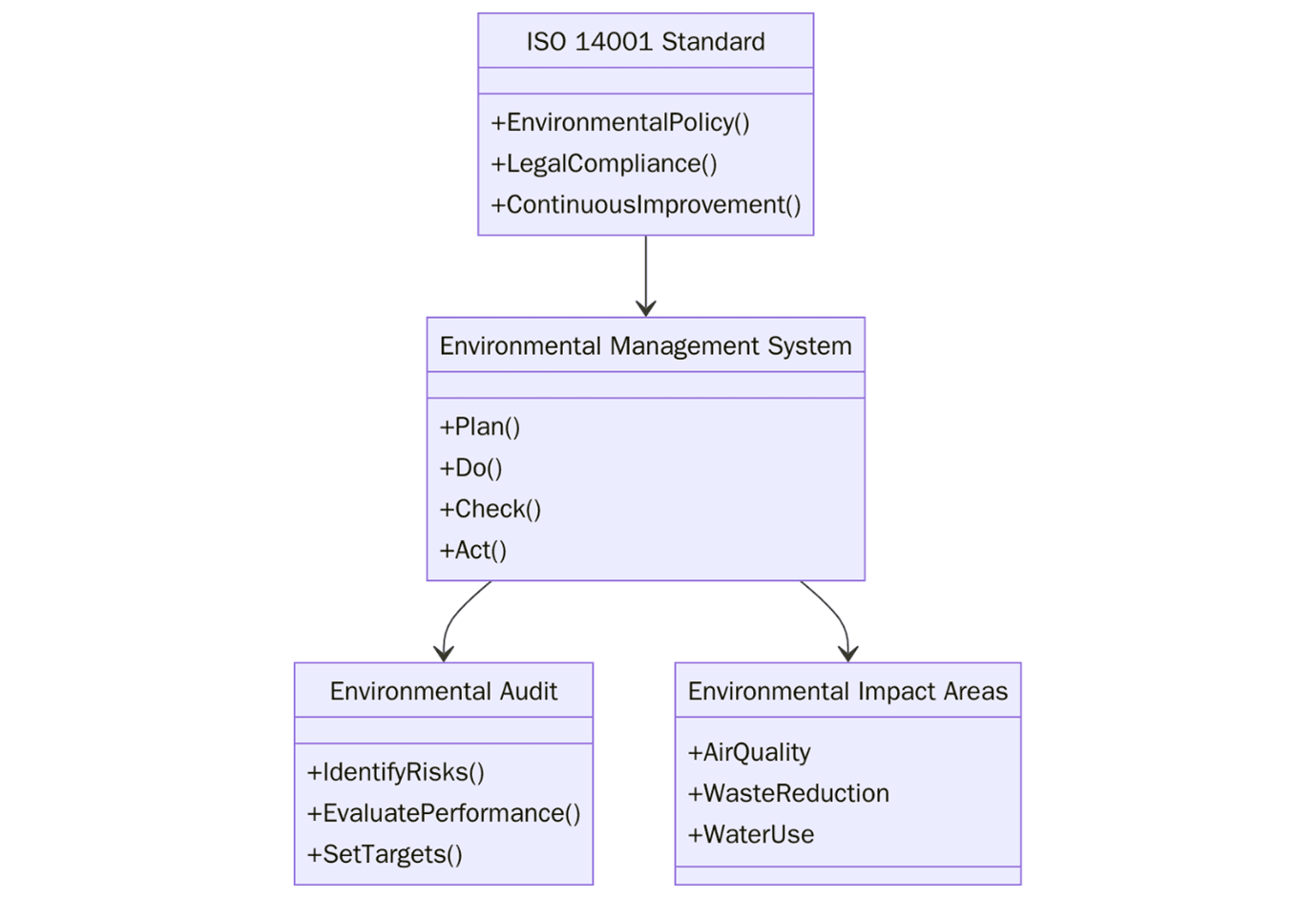
This standard enables businesses to minimize their ecological footprint, comply with federal and state regulations such as those enforced by the EPA, and reduce liabilities associated with environmental impacts. Companies that are ISO 14001 certified can identify the environmental aspects of their operations, set measurable objectives, and monitor ongoing performance through regular audits and reviews.
Adopting ISO 14001 helps U.S. organizations:
- Reduce energy and resource consumption
- Minimize waste and pollution
- Improve compliance with environmental laws
- Enhance reputation among environmentally conscious consumers and investors
In the context of growing ESG (Environmental, Social, Governance) reporting requirements and climate disclosure rules under frameworks like the SEC’s proposed climate-related disclosures, ISO 14001 provides a structured, auditable approach to environmental stewardship.
For organizations seeking ISO 14001 certification or an integrated management system that includes environmental and quality controls, we offer full-service audit and certification support. Reach out at [email protected].
ISO 50001 and Energy Efficiency in U.S. Industries
ISO 50001 is a strategic tool for organizations aiming to improve their energy performance. It provides a framework to develop policies, set energy reduction targets, monitor results, and continually improve energy efficiency across all operations.
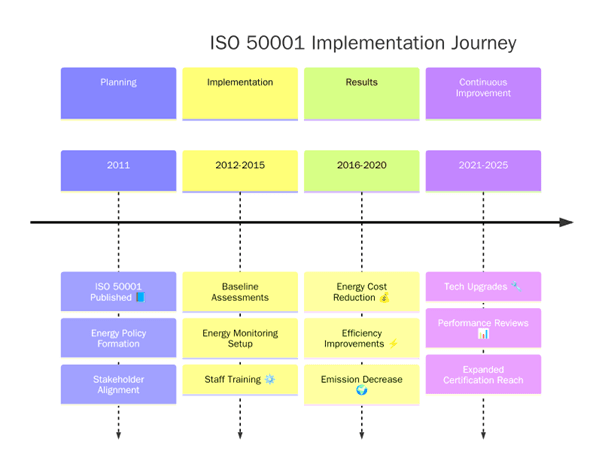
In the U.S., where energy costs and carbon emissions are closely tied to both operational efficiency and environmental impact, ISO 50001 helps organizations stay ahead of policy changes and optimize their energy usage. The Department of Energy (DOE) and the Environmental Protection Agency (EPA) both recognize ISO 50001 as a best practice framework for improving energy performance and meeting regulatory targets.
For manufacturers, data centers, logistics firms, and other energy-intensive industries, certification to ISO 50001 leads to significant cost savings and reduced greenhouse gas emissions.
If your organization is looking to optimize energy use while reinforcing its sustainability agenda, Pacific Certifications can support you in achieving ISO 50001 certification for more information contact us at [email protected].
ISO 26000 and Social Responsibility
ISO 26000 offers comprehensive guidance on how businesses can operate in a socially responsible way. In the U.S., where transparency, diversity, and ethical practices are becoming critical to brand image and investor relations, ISO 26000 serves as a valuable benchmark.
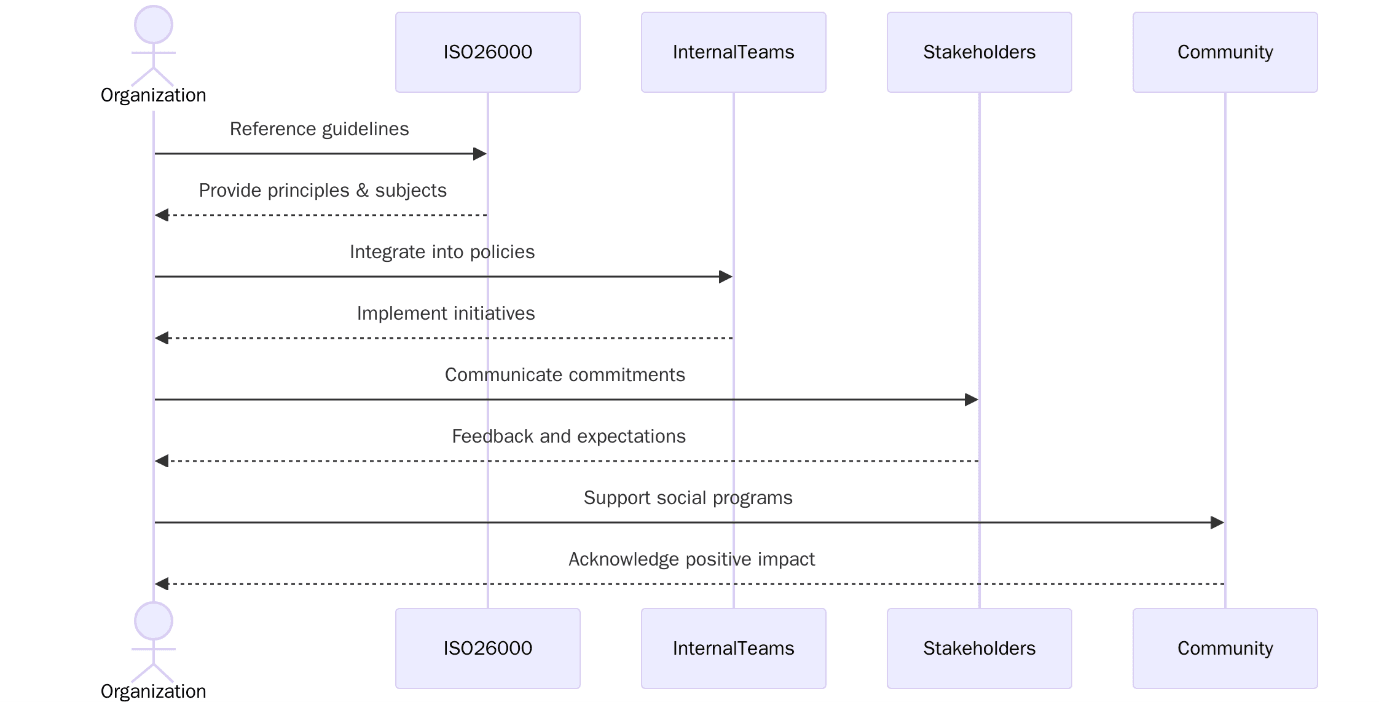
The standard touches on several key areas of corporate sustainability, including:
- Organizational governance
- Human rights and labor practices
- Fair operating practices
- Consumer issues
- Community involvement and development
Organizations that align with ISO 26000 demonstrate a clear commitment to ethical operations, human capital development, and social impact—qualities that resonate strongly with modern consumers & employees.
If you're interested in aligning your organization with social responsibility best practices, we can help you integrate ISO 26000 guidance into your ISO management systems. Let’s discuss your goals at [email protected]!
How ISO 9001 Supports Sustainable Quality Practices
ISO 9001 is primarily associated with quality management; it plays a vital role in sustainable business operations. The standard promotes a culture of continual improvement, customer satisfaction, and process optimization, all of which contribute to waste reduction, resource efficiency, and long-term viability.
In U.S. businesses, especially in manufacturing and service industries, ISO 9001 is often integrated with ISO 14001 or ISO 45001 to create a holistic management approach that prioritizes both quality and sustainability. By embedding quality and environmental objectives into the same framework, companies are able to streamline audits and accelerate their journey toward sustainability.
If you're looking to build a sustainable quality framework through ISO 9001 or integrate it with environmental or safety systems, we at Pacific Certifications can design a multi-standard certification plan for your organization. Contact us today at [email protected]!
U.S. Regulatory Trends and the Push for Sustainable Certifications
In recent years, the U.S. government and private sector have increased their focus on sustainability and climate accountability. The Trump administration’s policies, including the Federal Sustainability Plan and the Inflation Reduction Act, prioritize clean energy, carbon reductions, and transparent climate-related reporting.
Additionally, large corporations and federal contractors are increasingly requiring their suppliers to hold environmental certifications like ISO 14001 or demonstrate ESG alignment. This means small and medium-sized enterprises (SMEs) that achieve ISO certifications will have a stronger chance of participating in larger supply chains and government contracts.
Moreover, ESG reporting frameworks such as SASB, TCFD, and GRI often align closely with ISO standards, making certification a foundational step in meeting these external disclosures and investor expectations.
As sustainability becomes central to U.S. regulatory and market frameworks, we help businesses across sectors prepare for ISO audits and align with ESG-driven growth. Start your certification journey by reaching out to [email protected].
Building a Greener, Smarter Future with ISO Standards
Sustainability is a business necessity, ISO certifications provide U.S. organizations with the structure and international recognition needed to meet today’s environmental and ethical standards while staying competitive in an evolving market.
Whether your company is starting from scratch or integrating sustainability into an existing management system, ISO standards such as ISO 14001, ISO 50001, ISO 9001, and ISO 26000 offer clear, proven pathways to long-term success. They help businesses to comply with regulations but lead the way in responsible growth, innovation, and stakeholder trust.
Pacific Certifications, an accredited certification body, offers full-scope ISO certification services for companies across the U.S. seeking to implement sustainable practices. From environmental audits to integrated management systems, our team ensures compliance, performance, and continuous improvement.
Let us help you build a sustainable business that makes a lasting impact. Contact Pacific Certifications at [email protected].
Ready to get ISO certified?
Contact Pacific Certifications to begin your certification journey today!
Suggested Certifications –
Read more: Pacific Blogs
